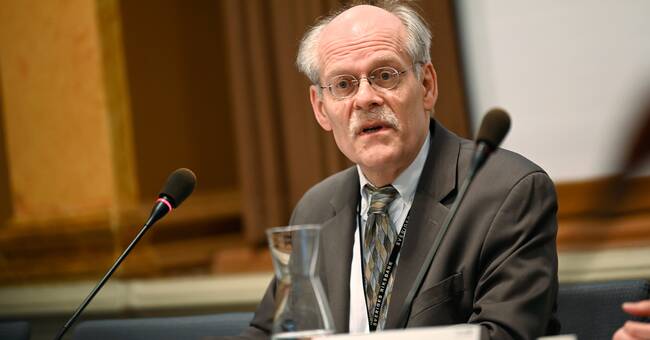Before the Finance Committee, Ingves was questioned together with Deputy Governor Martin Flodén during the morning.
The main topic was given - the issue of inflation.
How much can inflation rise and, above all, how long will it remain at its current level?
According to the Governor of the Riksbank, however, this is considered to be a temporary problem for the Swedish economy.
- The assessment we make is that when supply restrictions subside, it will be correct, says Ingves, and makes the assessment that inflation will reach a maximum of 3.2 percent in the next few months.
Afterwards, he develops his reasoning:
- There are two parts, we are moving towards a normalization where emerging bottlenecks will gradually disappear, and the other part with oil and energy prices where we have difficulty seeing that electricity prices will continue to rise.
We already know that electricity prices fluctuate very much.
TT: When, however, can rising inflation become an actual problem for the Swedish economy?
- It is not possible to say at present.
If we are right in our forecast, the inflation rate will fall even below 2.0 percent and then we will talk about a course during the first half of the year.
Highest since 2008
Just a couple of days ago, new inflation figures came from Statistics Sweden (SCB), which reported so-called CPIF inflation of 2.8 per cent for September.
This is the highest monthly figure since the financial crisis in the autumn of 2008.
Ingves points out, however, that what is now primarily driving inflation upwards are precisely rising energy prices, where, among other things, oil prices have risen sharply in recent months.
- Our assessment is that electricity and oil prices will not rise for any length of time, but these will eventually subside and we currently see no heavy underlying inflationary pressure.
If we are right, there is no major drama in this.
According to the Riksbank, no signs of dispersal effects have now been seen based on higher inflation, but it is a factor of uncertainty that is the focus.
- The spillover effects in Sweden have been small.
It has not been the case that they have really started to raise the prices of consumer goods, but it varies a bit on what kind of goods it is, says Deputy Governor Martin Flodén.

